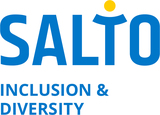Competences for ALL 2010
This TC focuses on encouraging youth workers, social workers, public bodies and NGOs to use comparable and transparent recognition instruments for recognizing the competences of young people with fewer opportunities (with focus on school dropouts).
General aim:
To support the development of participants competences in relation to the process and value of non formal learning and recognizing competences of young people with fewer opportunities.
Objectives:
- To increase knowledge about the inclusion of young people with fewer opportunities (especially school dropouts)
- To gain competences on how to stimulate the learning process of young people with fewer opportunities
- To explore the possibilities on how to support the self assessment and development process of young people's competences
- To get familiar with different recognition tools, methods and approaches
- To exchange good practices about how these processes can effect personal pathways (for example employability) of inclusion target groups
Dates & Venue
From 5th till 11th of May, 2011 in Antwerp, the European Youth Capital 2011, Belgium
www.zeemanshuis.be
^^ top ^^
Programme Elements
- What is learning and a learning process, types of learning (formal, informal, non-formal), non formal learning activities (characteristics, advantages and disadvantages)
- How to stimulate the learning process of young people with fewer opportunities?
- Non formal learning in relation to youth work
Competencies:
- Concept of a competence and different types of competences.
- What are key competences?
- What is a competence-based approach and how to use it in youth work?
Recognizing competences and recognition tools
- Why and how to recognize competences?
- Recognition, documentation and understanding of non-formal learning
- Difference between recognition, assessment and validation
- How to support and recognize the competences of young people with fewer opportunities? What are recognition tools?
- Good examples of existing tools (Youth Pass, C-stick, Profil Pass, ...)
- Advantages and obstacles in using the tools with young people from the inclusion target groups
- Experiencing the youth pass
Education and employment of young people with fewer opportunities
- background information about school dropouts - bigger picture of policy frame work and recognition
- The potential of non formal learning activities in youth work in relation to life-long and life-wide learning.
Inclusion and Diversity:
- How can we work on inclusion and diversity in our youth work?
- Who can support youth work in this?
Youth In Action
- Inclusion in the Youth in Action Programme
- Possibilities of YiA to contribute to employability
Target Group
There will be 26 participants at the training, selected according to the criteria below:
- Youth workers, social workers working in a non formal way with school-dropouts (active in inclusion field)
- Older than 18
- Able to express themselves in English
- Strongly motivated to develop their working approach in the inclusion projects
- Interested in exploring the possibilities that NFL within YiA is offering to individual and social development
- Interested in assessing competencies of inclusion target groups
- Able to attend the TC for the full duration of the course
^^ top ^^
Trainers team
The trainers team will be composed of 2 experienced trainers (plus National Agency & SALTO Inclusion & SALTO T&C staff).
Trainers
- Vojislava Tomic (Serbia)
- Henk Persyn (Slovenia-Belgium-Fl)
NA/SALTO staff
- Katrien Ponsaerts (JINT - Flemish National Agency)
- Liselotte Vanheukelom (JINT - Flemish National Agency)
- Marija Kljajic (SALTO-Inclusion Resource Centre) and
- Kristiina Pernits (SALTO T&C).
^^ top ^^
For more information contact:
Marija Kljajic
SALTO Inclusion Resource Centre
marija@salto-youth.net
www.salto-youth.net/inclusion/
Tel: +32-22.09.07.20 Fax: +32-22.09.07.49
^^ top ^^
 Social Exclusion? Unbelievable!
Social Exclusion? Unbelievable!
